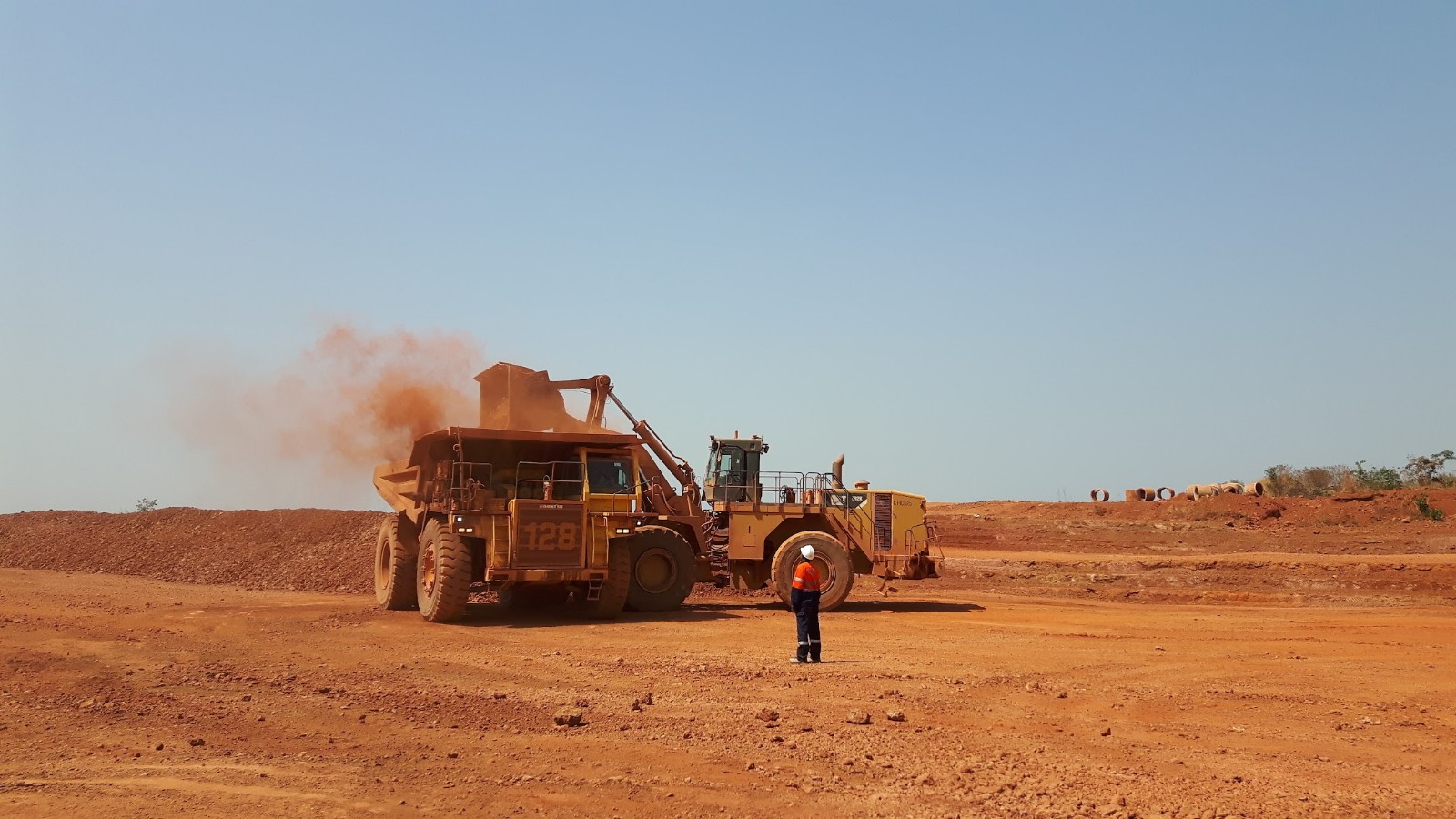Instead of reaping the benefits of Guinea’s growing bauxite market, women have paid a heavy price for it. Now they’re trying to change this, writes Hadja Aicha Barry from Publish What You Pay Guinea.
When Guinea’s President, Alpha Condé, was overthrown after 11 years in power on September 5 2021, international commentators were quick to highlight the gulf between Guinea’s enduring poverty and its transformation towards becoming a mining power.
Guinea’s mining boom has been driven by the vast deposits of bauxite – the reddish rock from which aluminum is produced – beneath the surface of our soil.
We are the world’s second biggest bauxite producer, and have greater reserves of it than any other country. China imports around half of its bauxite from us, and along with Russia, has invested billions of dollars in mining in Guinea. In 2015 we exported US $597 million of bauxite. By 2020 the figure was US $3.3 billion.
But instead of this surge heralding a new era of greater prosperity for all, many of Guinea’s 13 million people remain trapped in poverty, their lives as precarious now as in 2015. In the years that our bauxite exports rocketed, our position near the bottom of the UN’s Human Development Index, barely shifted. Women, in particular, are failing to see the dividends from mining.
Dysfunctional
The failure to translate Guinea’s boom in bauxite – our ‘red gold’ as it has been called – into noticeable benefits for the majority of our people, is linked to the dysfunction that has corroded Guinea’s mining sector for years.
The sector has faced accusations of corruption, of environmental damage, of multinational mining companies driving people from their ancestral lands without fair compensation, and of other violations of the human rights of communities living close to the mines.
But while all this is well-documented, two important elements are frequently ignored: mining’s disproportionate impact on women, and how little women’s voices are heard in decisions regarding the sector.
Women bearing the brunt
Guinea, like so many countries, suffers from gender inequality. Our society is heavily dominated by men, and women’s decision-making roles, both within our own families and in society more broadly, are often constrained by sociocultural factors.
Being actively engaged in the fight for better governance of natural resources, particularly as a member of the Guinean coalition of Publish What You Pay – a global movement ensuring that extractive companies are transparent and accountable for the harm they cause – every day I see how these inequalities are mirrored in mining. Women experience fewer of the benefits from the sector than men, and more of its negative consequences.
In Boké, the north-western region where Guinea’s bauxite boom is centred, the damage caused by mining includes lower soil fertility, less land being available for cultivation, land being coated in red dust loaded with fine particles spread by the trucks which transport bauxite, as well as water shortages. Women bear the brunt of this.
When mining operations start in their areas, it is women who have to find other sources of food and travel further to fetch water and firewood. When communities are displaced because of mining, women often have no rights to land ownership and receive no compensation. They are also exposed to gender-based violence, a scourge in mining areas.
Yet, it is men who the mines mostly employ, and male community leaders who usually receive any financial compensation from mining companies for operating in their areas. Women are also under-represented in mining’s administrative, political and company spheres. According to EITI-Guinea, and thanks to our advocacy to get sex-disagrageted employment data, out of approximately 20 active mining companies listed in Boké, only one woman held a management position in 2019.
Claiming our rights
I am one of a number of women fighting for more women’s representation in mining in Guinea, and for us to receive an equitable share of the sector’s benefits.
In practical terms, this means working at all levels: firstly, with communities, raising awareness of women’s rights and supporting women to have a say in how mining is governed at a local level. Secondly, with companies, notably by pushing them to establish quotas for employing women and to create partnerships with local women. And finally with the authorities, for example to ensure that 20% of the local development funds paid by extractive companies benefit women. But we also need a more global framework, and this is why we are calling for a gender-sensitive national policy, including a revised mining code. As a member of the Extractive Industry Transparency Initiative (EITI), the global standard for good governance in oil, gas and mineral resources, Guinea has to foster women’s leadership in the extractive sector. We are making sure that our authorities take concrete measures towards this.
These can go a long way to ending the misery that mining’s expansion has brought to many Guinean women’s lives.
Along with other actions – particularly increasing mining’s transparency and accountability by publishing mining contracts in full, and sharing the profits of our natural resources more equitably – Guinea can end the ‘resource curse’ that has accompanied our growth into a mining power. Then our abundant bauxite reserves can be a boon to all our people, and help strengthen Guinea’s fragile political and social fabric.
Hadja Aicha Barry is a founding member and Vice-President of PWYP Guinea, and a member of EITI-Guinea’s steering committee, working particularly on women’s rights. She founded the Guinean Coalition of Women for Mining and Sustainable Development.
This op-ed has first been published in French in Deutsche Welle – Afrique











